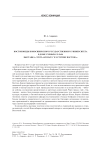Класс конфуция. Рубрика в журнале - Вестник Новосибирского государственного университета. Серия: История, филология

Статья научная
新西伯利亚国立大学孔子课堂(现名为孔子学院)于2008 年正式成立,现外方合作机构为新西伯利亚国立大 学,中方合作机构为新疆大学。在国家汉办的领导下,2018 年度中俄双方精诚合作、砥砺奋进,注重提质增 效,在汉语教学、本土师资培训、文化活动举办、中俄合作等方面做了大量工作,激发了当地人学习汉语以 及了解中国文化的热情。经过10 年的发展,孔子课堂于2018 年7 月正式晋升为孔子学院。
Бесплатно
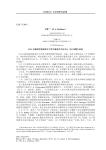
Статья научная
This article presents a brief report about all the activities held by the Center of Chinese Language and Culture (Confucius Classroom) at Novosibirsk State University with the support of Hanban - Confucius Institute Headquarters in 2014. The main activities include traditional and new projects in educational and cultural work, such as: visiting professors’ lectures, Chinese language summer camp in Urumqi and Xian, seminars for local Chinese teachers, study visit to China for the directors of Novosibirsk region’s educational institutions which included visiting Xinjiang University and primary and middle schools of Urumqi, Chinese-Russian Speaking Club for Chinese and local students of Novosibirsk State University, Confucius Institute Day etc. One of the key projects of last year was the organization (in cooperation with the Ministry of Education, Science and Innovation policy of Novosibirsk region) of the international conference «Cooperation of Russian and Chinese Educational Institutions: experience, problems and prospects» which was held in Novosibirsk Technopark on September 16-19. The discussion mainly focused on two themes: teaching Chinese in Russian schools and universities and educational and cultural cooperation between Novosibirsk region and China.
Бесплатно
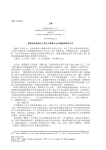
Advanced training programs for Chinese teachers of the Confucius class GF NSU
Статья научная
In the first item of Key Projects of «Confucius Institutes Development Program (2012-2020)», it was pointed out that a priority should be given to the training of local teachers as the key project. Confucius Classrooms at Novosibirsk State University takes the training of local teachers as one of the key tasks and has drawn out three patterns of training local Chinese teachers as follows: centralized special topic training, training on teaching materials and online e-training respectively. To satisfy the demands of the local Chinese teachers in Novosibirsk Confucius Classrooms at Novosibirsk State University asked the Confucius Institutes Headquarters to send an expert in Chinese teaching to hold a centralized special topic training at Novosibirsk State University. For the purpose of targeted training and guaranteeing training quality, a questionnaire concerning training time, training experts, training contents, training patterns and special topic of training was designed and sent to local Chinese teachers in Novosibirsk to seek their advice and proposals. In accordance with the requirements of Hanban for centralized training of local Chinese teachers, Chinese experts’ trainings take up only one half of the overall lectures, and the other half of lectures must be given by local experts. The 2015 training’s special topic was «Lexicology and Chinese Teaching Methodology». Lectures were delivered by professor of Capital Normal University (Beijing) Lin Xuqin, senior lecturer of Novosibirsk State University Tatyana Zavyalova and senior lecturer of Novosibirsk State Pedagogical University Marina Kuratchenko. In addition, 2-hour experience classes of Chinese culture such as calligraphy, Chinese knot, paper-cutting, tea art, martial arts, and Yangko dance were offered every day. Training on teaching materials and methods focuses on textbooks and teaching methods, it is held twice a term. In line with the Chinese teaching situation in universities, middle schools and elementary schools in Novosibirsk, New Practical Chinese Reader Textbook, Kuaile Hanyu (Fun with Chinese) and Chinese Paradise, which were recommended by Hanban, have been taken as the main training textbooks. Under the guidance of experienced trainers, the trainees discuss and exchange ideas on the teaching plans, teaching methods, courseware etc. through interaction and discussion. Confucius Classroom at NSU plans to start the first online e-training for Chinese teachers in October 2015. Tatyana Zavyalova will give a six-month-long course of lectures (from October through December 2015 and from March through May 2016), once a week, and total 48 hours. This year theme is «Basic Classical Chinese». After the lecture, the trainees are supposed to make a report on their learning, and then a teacher will give some comments and award the qualified trainees certificates.
Бесплатно
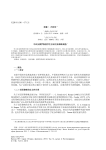
Communication strategies for students from Central Asia and Russia who studying Chinese
Статья научная
There are a lot of differences in communication strategies among students from different regions and countries. In this paper we investigate such a strategy for students from Central Asia and Russia in order to improve their level in Chinese. There are two kinds of communication strategy. One is reduced strategy which means people will not face problem directly, sometime they even give up expected goal. The other is achieved strategy which refers to remedial measures for limited language means when learners decide to keep the original goal. This study was carried out by authors on their experience of Chinese teaching to 80 foreign students at Xinjiang University and Xinjiang Agriculture University. All the data are presented in the tables within the text and have been analyzed through statistic methods. The selection of the strategies as a rule is determined by many factors. The most essential among them are the personal characteristics of students (so called introverts and extraverts), continuance of studying Chinese and the level of language skill which is corresponding to the levels of HSK. It was determined, for example, that Russian students as a rule are less inclined to use communication strategies (in compare with students from Central Asian five states (Kazakhstan, Kyrgyzstan, Tajikistan, Turkmenistan and Uzbekistan). All students have been divided into two groups according to sex, 46 of male, 34 of female. The statistics shows that male students find more ways to succeed in communication because their frequency of communication strategy is higher than those of female students. What’s more, boys are more active than girls, and the strategy they take are more simple and effective. But female students choose communication strategies that need more time, such as explanation and description. The study shows that there are certain rules in the use of communication strategy by foreign students. The level of Chinese mainly affects the frequency and types of communication strategy. At the same time, personal factors of learners make influence on using of communication strategy, too. But language learners don’t realize the importance of communication strategy which has been regarded as one of strategy knowledge through investigation. It was defined that foreign students themselves can’t have a rational concept of communication strategy consciousness and communication strategy knowledge. And it is not significant to study communication strategy alone. This studying would be most effective when we know it, use it in teaching and make language learners have rational conception of it. Teachers of Chinese can choose communication strategy through analyzing personal factors and social context of language learners.
Бесплатно
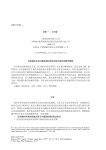
Статья научная
There are many kinds of Chinese complements that are used frequently and semantic orientation varies in context. By interviewing with local Chinese teachers and students in Russia, we found that Chinese directional complement is a very key and difficult grammatical point. This paper focuses on Chinese Directional Complement and the corresponding expression in Russian. Through analyzing and contrasting the characteristics of the structure and the position of object clause in Chinese and Russian, we found that there are a lot of difference in this language phenomenon between Chinese and Russian, which mainly lies on the quantity of directional complement words, word class, syntactic constituent and structure. Therefore, we put forward some strategies for better teaching and study of this language phenomenon in Russia.
Бесплатно
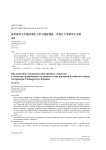
Статья научная
In the late 1970s and early 1980s, after several decades of development of teaching Chinese as a foreign language, a new situation of reform was emerging. In this reform, the setting of classes according to language skills has become a tendency, and the listening class has become an independent class. The research on listening teaching has gradually increased. Based on the practice, this paper investigates the listening learning of 39 middle-level students from Fudan University in the spring of 2018, from the students' attitude towards listening lessons, their understanding of listening lessons, and the experience of using textbooks. A detailed investigation and analysis of the teacher's satisfaction and the five aspects of the practice setting were made. In order to improve the effect of intermediate Chinese listening teaching, based on the results of this survey and analysis, this paper proposes some ideas and teaching strategies from the listening course itself, listening content, practice questions and teachers, in order to provide intermediate Chinese as a foreign language. Listening teaching provides a reference.
Бесплатно
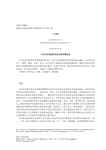
Статья научная
The main aim of teaching Chinese as foreign language is to foster capability of social communication with Chinese native speakers. Through analyzing grammatical errors in the period of elementary Chinese studies, this paper expounds the micro skills for better teaching. The involved grammar points in this paper were taken from «New Practical Chinese Reader Textbook» (vol. 1 and 2) and «Conversational Chinese 301» (in two parts). The grammatical errors are mainly revealed in two aspects: function word and words’ order. We found that Russian students’ grammatical errors can be divided into four categories: omission, improper addition, over representation and words’ disorder. This paper presents some micro skills in teaching Chinese such as contrast method,simplification method, semantic and structure analysis, situational method etc. Language contrast has two categories, the first is contrast between Chinese and another languages, the second is contrast within Chinese language. It is quiet difficult to learn Chinese grammar at the beginning period. Thus, the teachers should use simple constructions to explain Chinese grammar for students more easy understanding. In practical teaching we often use phrase and sentence structure to study Chinese grammar. We put the grammar in some contextual language environment by adopting situational method, then students can transfer grammar into practical communicative capacity, combining with semantic pragmatic analysis. The teachers of Chinese should flexibly adopt various methods, instead of rigidly adhering to the textbook, to promote efficiency in the beginning period of Chinese grammar teaching.
Бесплатно
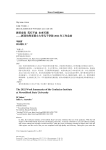
The 2022 work summaries of the Confucius Institute at Novosibirsk State University
Отчет
In 2022, the Confucius Institute at Novosibirsk State University withstood the test of the pandemic. With the full support of Novosibirsk State University and Xinjiang University, it actively continued to carry out Chinese teaching and various cultural and scientific research activities, while the scope of influence extended to Siberia, the Urals and Altai regions, and the work of the year was completed with high quality and efficiency. During this year, under the leadership of the Chinese and Russian directors, all staff of the Confucius Institute worked tirelessly to build digital Chinese teaching resources, enriching the diversity of cultural activities, enhancing the influence of competitions and academic activities, vigorously cultivating Chinese talents, and creating outstanding talents. Remarkable results have been achieved. In the new year, the Institute will continue to work hard in all work-related aspects, firmly grasp new development opportunities, and promote the rapid recovery of inter-university exchanges and cooperation between China and Russia and achieve new and greater development.
Бесплатно
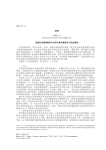
Статья научная
With the development of China’s economy and the growing demand for the extension of intercultural communication, ”Chinese international education (Chinese as a foreign language)“ major has been developing rapidly. A lot of colleges and universities have made extensive researches on the syllabus and training scheme, curriculum setting and teaching execution planning, and have basically built a scientific and systematic training mode, which is being constantly improved. But the development of international promotion of teaching and learning Chinese language and getting teaching feedback have evidentiated the great importance of students’ practice-teaching overseas for their studying and working in the future. The overseas teaching experience during the period of study will become an efficient way to develop Chinese international education and promote the professional growth of students.
Бесплатно
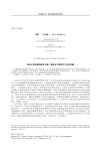
Статья научная
On November 14, 2015 Confucius Classroom at Novosibirsk State University (NSU) held the first Chinese movie-dubbing contest for university students of the Siberian region. 13 teams form NSU, Novosibirsk State Normal University (NSNU), Novosibirsk State Technical University (NSTU), Siberian Institute of Management - branch of the Russian Presidential Academy of National Economy and Public Administration under the President of the Russian Federation (SIM), Tomsk State University (TSU) and Altai State University (ASU) took part in the contest. The contest was divided into two parts. In the first part competitors needed to dub the designated movie clip that had been chosen in advance from the romantic comedy directed by Feng Xiaogang “Be There or Be Square”. The second part was to dub self-selected movie clips. Each team had selected its own clip and dubbed it in live performance. The teams from NSU dubbed the clips from “Under the Hawthorn Tree” (directed by Zhang Yimou), “Confucius” (directed by Hu Mei) and “Love Is Not Blind” (directed by Teng Huatao). TSU team had selected a clip from the comedy “Lost in Thailand” (directed by Xu Zheng). The team from SIM performed the dubbing of a clip from the comedy-drama film “Go away, Mr. Tumor” (directed by Han Yan). The teams from NSNU dubbed clips from “Fight Back to School” (directed by Gordon Chan), “New Age of Love” (directed by Zhang Xiaoguang), “Pure Red Heart” (directed by Ye Daying) and “The Stolen Years” (directed by Wong Chunchun). ASU teams had selected clips from the movies “Monster Hunt” (directed by Raman Hui) and “Lost in Thailand” (directed by Xu Zheng). The team from NSTU had chosen a clip from the cartoon “The Bench”. All the competitors demonstrated vivid performances and high level of Chinese language skills, but a special mention must be made of the emotional performance of the TSU team that earned a lot of applause. In order to ease the tension of the competition, teachers of Confucius Classroom presented wonderful performance. Zhao Yuan and Dmitry Khlichkin, the hosts of the contest, dubbed a clip from the Soviet movie “Office Romance” (directed by Eldar Ryazanov) in Chinese. Bai Miao, Chinese volunteer teacher, played the guzheng classical “Fisherman's Song”. The first prize of the contest went to one of the NSU teams. The teams from TSU and SIM shared the second prize, while the third prize was shared between ASU and NSU teams. Angelina Krylova from SIM, Lilia Kizilova from TSU and Alexandra Pozhidaeva from NSTU won special awards for the best pronunciation, the best artistic impression and the best potential, respectively. After the contest most of the teachers and students expressed a belief that such competitions could not only improve the speaking ability, but also stimulate the enthusiasm for further studying the Chinese language and culture. The contest renewed and enriched the forms of learning Chinese. The atmosphere of professional contest and the wonderful talent show were well received and aroused a great interest. This contest was reported on Hanban, NSU and Xinjiang University news websites. Confucius Classroom at NSU plans to hold the second Chinese movie-dubbing contest on October 22, 2016.
Бесплатно
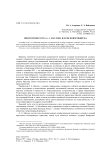
Визит профессора А. А. Маслова в вузы Новосибирска
Другой
В декабре в НГУ и Сибирской академии государственной службы состоялись открытые лекции и консультации для сотрудников известного российского китаеведа, профессора А. А. Маслова - востоковеда, государственного эксперта в области российско-китайского сотрудничества в сфере образования.
Бесплатно
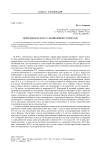
Деятельность класса Конфуция НГУ в 2010 году
Отчет
В статье рассматривается деятельность Класса Конфуция Новосибирского государственного университета в области обучения китайскому языку в средней и высшей школе, представлены основные мероприятия, посвященные культуре Китая.
Бесплатно
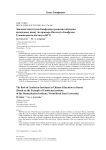
Статья научная
Интенсификация отношений РФ и КНР в различных сферах вызывала долгосрочный повышенный спрос на обучение китайскому языку в России. В удовлетворении этой потребности заметную роль играют институты Конфуция. Распространение среди россиян владения китайским языком, знакомство их с особенностями китайской культуры и менталитета, продвижение гуманитарных обменов с Китаем и наращивание международного взаимопонимания – общая цель российских институтов Конфуция. В данной статье рассматривается их деятельность с точки зрения развития преподавания китайского языка на примере реализации проекта «Институт Конфуция НГУ» в последние два года. В рамках партнерства с Синьцзянским университетом Новосибирский государственный университет не только пользуется лучшими условиями для подготовки своих студентов гуманитарных направлений, но и вовлекает в международное сотрудничество в области преподавания иностранных языков целый ряд учреждений высшего и среднего образования.
Бесплатно
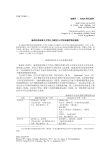
Статья научная
Руководство Института Конфуция ставит задачу всемерной поддержки дела преподавания китайского языка в довузовском звене образования разных стран и поощряет совершенствование методик преподавания, программ, учебных материалов, ведет подготовку китайских и иностранных преподавательских кадров для того, чтобы китайский язык мог соответствовать статусу учебной дисциплины «иностранный язык» наравне с прочими иностранными языками, традиционно преподаваемыми в школах в рамках обязательной программы. В данной работе анализируется первый опыт Класса Конфуция НГУ в области преподавания китайского языка в начальной и средней школе в 2009-2010 гг. Авторы обобщили данные по обучению в шести школах Новосибирска, включая учебные материалы, объем занятий, количество учеников, представили обзор основных трудностей и вопросов преподавания, а также планы по совершенствованию работы в этом направлении. В настоящее время применяются две модели преподавания китайского языка в школах: как предмета (по выбору или обязательного) для учеников того или иного класса и как языковой курс для всех желающих (как школьников разных классов, так и взрослых). Авторы отмечают различие методов у китайских и русских преподавателей, а также недостаточную адаптированность имеющихся учебных материалов к российским условиям. Класс Конфуция НГУ считает необходимым подготовку учебников и программ обучения, отвечающих российским стандартам начального и среднего образования, в основу которых должны быть положены требования к уровню знаний, предполагаемых международным экзаменом по китайскому языку для детей (YCT).
Бесплатно
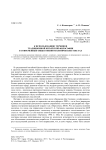
Статья научная
Статья посвящена выяснению терминов «деяние - недеяние», заимствованных из традиционного даосизма, и их значению для перевода современной общественно-политической литературы.
Бесплатно
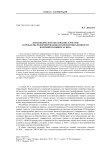
Статья научная
Статья посвящена проблемам реформирования китайской письменности в первой половине ХХ в. Развитие классического российского китаеведения в 1920-х гг. вошло в противоречие с политическими и культурными процессами в СССР и во всем мире. Попытка перевода китайского языка на новую письменность – латинизированный алфавит, была вызвана как практическими потребностями развития русско-китайских отношений, так и общими процессами трансформации России и Китая в эпоху кризиса традиционных империй и революционных преобразований. Движение за радикальные изменения в китаеведческом образовании отчасти шли снизу, от студенчества. Инициатива в переходе на латинизированное письмо во многом принадлежала китайской прогрессивной общественности и советским китайцам. В начале 1930-х гг. в СССР в рамках движения за новый алфавит был создана и внедрена в практику китайская латинизированная письменность. Однако в то время иероглифическая письменность так и не была вытеснена ни из образования, ни из практического обихода китайской диаспоры. К началу Второй мировой войны переход на латинизированный алфавит потерял актуальность, а политические репрессиисерьезно подорвали потенциал отечественногокитаеведения.
Бесплатно
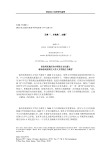
Класс Конфуция гуманитарного института НГУ - окно китайского языка и культуры в Сибири
Статья научная
Класс Конфуция НГУ был официально основан в 2008 г., его организацией-партнёром с китайской стороны является Синьцзянский университет. С 2014 по 2017 г. под руководством штаб-квартиры Институтов Конфуция (Ханьбань) Класс Конфуция сформировал системные механизмы для обеспечения качественного управления обучением и постоянного расширения масштабов образовательного процесса. Основное внимание уделялось преподаванию китайского языка для студентов НГУ, ряда других вузов и слушателей из других категорий населения. Для обеспечения качества преподавания дважды в годы проводятся курсы повышения квалификации для преподавателей китайского языка (один раз - на базе НГУ, другой раз - на базе Синьцзянского университета). В качестве культурологической составляющей процесса языкового обучения организуются мероприятия, посвященные традиционным праздникам Китая, занятия по каллиграфии, музыке, прикладным искусствам, циклы лекций российских и зарубежных специалистов. За последние несколько лет много делается для участия в научных изысканиях в рамках инициативы «Один пояс - один путь». Можно сказать, что такая напряженная деятельность Класса Конфуция Гуманитарного института НГУ сделала его широко раскрытым окном для популяризации языка и культуры Китая в Сибири.
Бесплатно
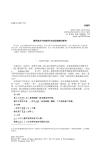
Статья научная
Независимо от родного языка наиболее серьезную проблему для изучающих китайский язык представляют собой лексические ошибки. При этом особую сложность вызывает употребление слов, имеющих синонимы и омонимы. В данной работе анализируются причины, которые приводят к типичному смешению подобных слов. Традиционно синонимы и омонимы определяются по нескольким критериям: принадлежностью к одной части речи, близостью по смыслу, функционированием в одной языковой системе. Однако такие критерии кажутся не слишком подходящими при обучении лексике в преподавании китайского языка как иностранного; слова, которые учащиеся рассматривают как близкие по значению, порой сильно выходят за рамки этого определения. Изучение ошибок словоупотребления, охватывающее не только вопросы употребления синонимов, но и смешение слов, к этой категории не относящихся, расширяет поле лексикологических исследований. В данной статье собраны примеры частых ошибок смешения слов, свойственных студентам из России и Средней Азии, сделан вывод о необходимости изучения проблемы смешения слов в связи с родным языком учащихся. Вывод иллюстрирован примерами из созданной автором базы данных ошибок российских и среднеазиатских студентов, изучающих китайский язык.
Бесплатно
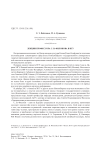
Лекции профессора С. В. Филонова в НГУ
Статья научная
В декабре 2015 года Новосибирский государственный университет посетил известный российский китаевед, ведущий специалист по даосистике Сергей Владимирович Филонов, профессор кафедры китаеведения, директор Научно-исследовательского центра китаеведения Амурского государственного университета, где прочитал курс лекций. по традиционной китайской религиозной культуре.
Бесплатно

